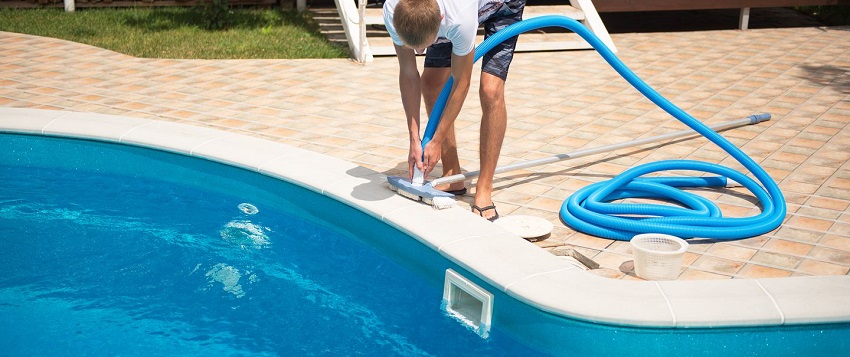
30 Jul Compelling Reasons Not to Own a Private Swimming Pool
Before diving in, you may want to look at the reality of owning a place to take a dip. Here are few reasons from best online casino in Australia why you should avoid owning at a private swimming pool.
Routine Maintenance Is Costly
Owning a home with a pool in the backyard provides a convenient source of fun for the entire family. However, you’ll be on the hook for regular (and expensive) maintenance when the pool is in use. In temperate areas such as Washington, D.C., pool season typically stretches from Memorial Day to Labor Day, but, in places such as Florida and Arizona, pools are used year-round. Experts recommend that a pool be cleaned weekly when in use. As part of the cleaning process, the pool’s pH level will need to be tested to ensure the alkalinity isn’t too low or high, which could make the water too acidic or reduce the effectiveness of the chlorine. When this happens, the water is no longer safe for swimmers and can cause corrosive damage to the pool’s surface and equipment.
- Repairs Are Even Costlier
A tear in a swimming pool’s lining, a protective layer applied to the pool before it’s filled, is a common repair encountered by pool owners. The liner acts as a barrier between the pool walls/floor and water, and it helps prevent mold growth. Vinyl lining is popular largely due to its affordability. Expect to pay $200, on average, to have a professional repair a tear in a vinyl liner. If the tear is small enough, you may be able to repair it yourself with a vinyl pool liner patch kit (starting at $8 on Amazon). You could instead opt to play games at casinos en ligne en france.
- Safety Risks Abound
Nearly 300 children under the age of 5 drown in backyard swimming pools every year, according to the Consumer Product Safety Commission (CPSC). Many localities require a safety barrier to be installed around a residential pool to help prevent accidental drownings. You want to be sure to install a separate fence specifically around the pool and not just the backyard. If you have small kids at home, consider buying a fence with a self-closing door with a locking mechanism that’s positioned high up on the door panel –
- You May Need Additional Insurance
Since homeowners with pools face the potential for pool-related injuries or even deaths, insurance providers commonly refer to residential pools as “attractive nuisances.” Consider increasing your liability coverage beyond what’s already offered through your homeowners insurance policy. Taking out a personal umbrella insurance policy is a good way to do this. Should you ever get sued, an umbrella policy kicks in once you’ve exhausted the liability coverage provided by your homeowners policy, which usually maxes out around $300,000.
- Resale Value Is Low
You might think that adding a pool to your backyard would boost your home’s resale value significantly. It won’t. The most your home’s value might increase is 7% — and that’s only if it meets certain criteria when it’s time to sell, according to HouseLogic.com. This includes living in a warmer climate and residing in a high-end neighborhood where most of your potential neighbors have a pool in the backyard, as well as having a lot big enough to accommodate a pool while still having room for a garden or play area for kids, the site notes.

No Comments